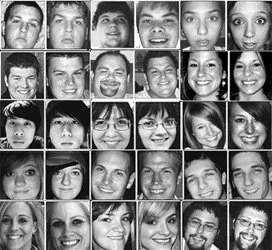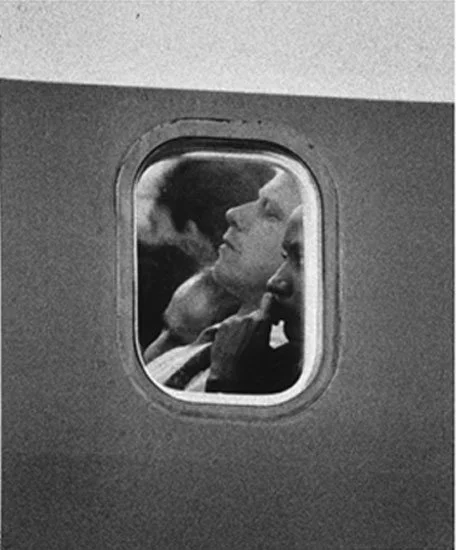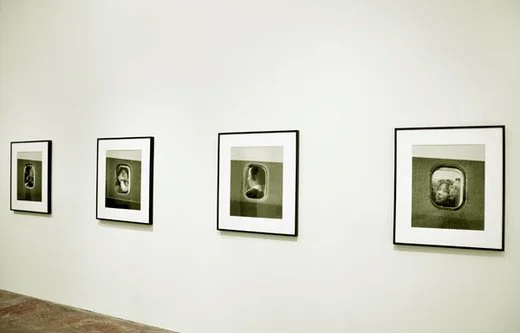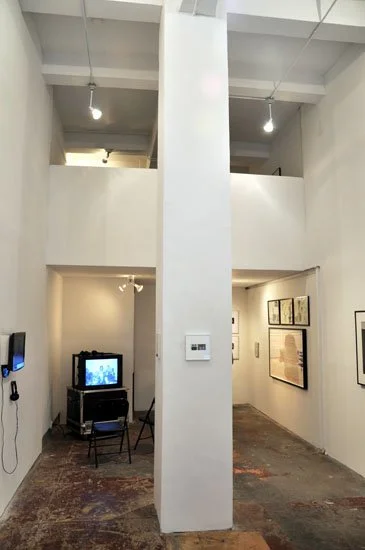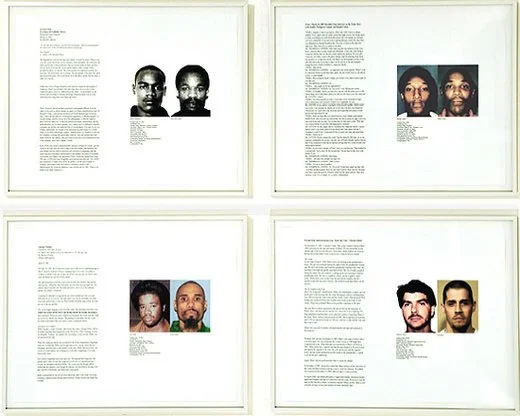Mistaken Identity
May 7 - July 18, 2010
Dan Graham
Innocence Project
Carol Irving
John Schabel
Karen Yama
The Yes Men
While the genre of portraiture tends to feature clearly defined subjects, the portrait show Mistaken Identity focuses instead on the uncertainties of facial recognition and how misperception might affect behavior in everyday experience. Linking the concept of belief to what we can “know” about an individual’s face, the exhibition explores identification as a process influenced by the particular circumstances of any given encounter.
Commonly associated with detective stories and courtroom dramas, the need of proof of an individual’s identity also has a utilitarian aspect, as our memories for faces plays a significant role in the most mundane of exchanges. In the somewhat rare case of people with prosopagnosia (face blindness), friends and family are indistinguishable from strangers, so that the “context” of an individual (hair, clothing, the sound of a voice) often provides the only clues to their identity. For an eyewitness or victim of a crime, these same associations can prove misleading, as they may falsely trigger a link to an innocent person who has chance connections to a perpetrator’s appearance.
The case of imposters provides yet another example of a loss of identity through context, but here the subject willingly foregoes recognition in favor of subterfuge. When exposed, the temporary forfeiture of an identity is often met with a great deal of hostility. Those fooled by the deception are now faced with the uncertainty of their convictions. This need for authentication in connection with facial identification runs deep, as it underlines the survival mechanisms that guide our perceptions of whom and what we can trust.
Approaching portraiture as a means to explore the complex relationship between perception and circumstance, the work in the exhibition Mistaken Identity presents a range of possibilities concerning the construction of belief in the process of fixing an individual’s identity.
The Innocence Project is affiliated with Benjamin N. Cardozo School of Law at Yeshiva University
John Schabel
Untitled (Passenger #12), 1995
toned gelatin silver print
23.25 x 19.25 in, 59.1 x 48.9 cm (artwork)
32.75 x 28.5 in, 83.2 x 72.4 cm (framed)
Edition of 10
The Yes Men
BBC World News Bhopal, 2004
video
5 min 29 sec
Karen Yama
There Hier, 2008
plywood shelf, photographs, frames and mirror
16 x 38 x 12 in, 40.6 x 96.5 x 30.5 cm
Installation view
John Schabel
Untitled (Passenger), 1995
from left: #12, #7, #4, #11
toned gelatin silver prints
Innocence Project (Ronald Cotton)
2010
archival inkjet print
1 of 4 pieces, 17 x 22 in, 43.2 x 55.9 cm
read text
Installation view
Installation View
Archival Material #4, 2010, archival inkjet print
1 of 4 pieces at: 8 x 8 in, 20.3 x 20.3 cm
Installation View
Archival Material #5, 2010, archival inkjet print
18 x 24 in, 45.7 x 61 cm
Carol Irving
PL/90-0559A, 1991
mixed media installation
overall installation: approx.
56 x 62 in, 142.2 x 157.5 cm
Innocence Project
2010
archival inkjet print
4 pieces, each: 17 x 22 in, 43.2 x 55.9 cm
